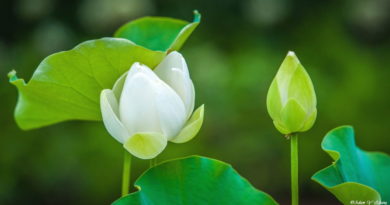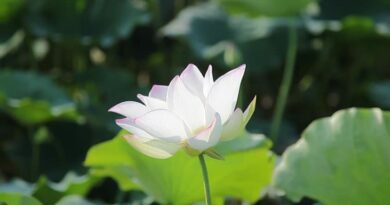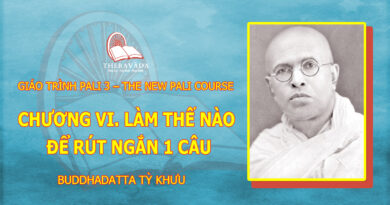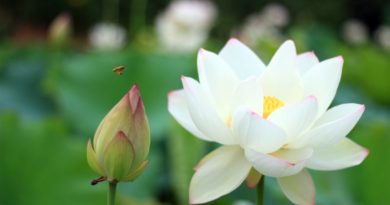Concise Pali-english Dictionary – I –
– I –
ikkhaṇika : [m.] fortune-teller. || ikkhaṇikā (f.), female fortune-teller.
ikkhati : [ikkh +a] looks at.
ikkhana : [nt.] seeing; looking at.
ikkhi : [aor. of ikkhati] looked at.
iṅgita : [nt.] gesture; sign.
iṅgha : [ind.] come on; look here.
iccha : [adj.] (in cpds.), wishing; longing; desirous of. || icchā (f.), desire; wish; longing.
icchaka : [adj.] one who desires.
icchati : [is + a] wishes; desires; longs for.
icchana : [nt.] desire; wish; longing.
icchanāvacara : [(icchan + āvacara) adj.] moving in desires; behaving as one likes.
icchanta : [pr.p. of icchati] wishing; longing for.
icchi : [aor. of icchati] wished; desired.
icchita : [pp. of icchati] wished; desired.
ijjhati : [idh + ya] thrives; succeeds; prospers.
ijjhana : [nt.] success; thriving. || ijjhanā (f.), success; thriving.
ijjhamāna : [pr.p. of ijjhati] thriving; succeeding; prospering.
ijjhi : [aor. of ijjhati] thrived; succeeded; prospered.
ijjhita : [pp. of ijjhati] succeeded; prospered.
iñjati : [iñj + a] moves; stirs.
iñjana : [nt.] motion; movement. || iñjanā (f.), motion; movement.
iñji : [aor. of iñjati] moved; stired.
iñjita : [pp. of iñjati] moved; shaken. (nt.), movement; vacillation.
iṭṭha : [adj.] pleasing; agreeable. (nt.), happiness; pleasure.
iṭṭhakā : [f.] tile; brick.
iṇa : [nt.] debt.
iṇaṭṭha : [adj.] one who is in debt; debtor.
iṇapaṇṇa : [nt.] promissory note.
iṇamokkha : [m.] release from debt.
iṇasāmika : [m.] creditor.
iṇasodana : [nt.] discharge of debt.
iṇāyika : [m.] debtor.
itara : [adj.] the other.
itarītara : [adj.] whatsoever; any.
iti : [ind.] thus. (used to point out something just mentioned or about to be mentioned, and to show that a sentence is finished). Very often its former i is elided and ti only is remaining. || īti (f.), calamity.
itikira : [ind.] thus I have heard.
itivuttaka : [nt.] a treatise of Suttas beginning with the phrase ‘thus it is said’.
itihāsa : [m.] history; tradition.
ito : [ind.] from here; from now; hence.
itopaṭṭhāya : [ind.] hence-forth.
ittara : [adj.] short-lived; brief; very small or few.
ittarakāla : [m.] a short period.
itthaṃ : [adv.] thus; in this way.
itthaṃnāma : [adj.] called thus; so-called.
itthaṃbhūta : [adj.] being thus; of this kind.
itthatta : [nt.] 1. (itthaṃ + tta:) the present state; this life. 2. (itthi + tta:) womanhood; femininity.
itthannāma : [adj.] of such and such a name.
itthāgāra : [m.] 1. harem; seraglio; 2. harem-ladies.
itthi : [f.] woman; female. || itthī (f.), woman; female.
itthikā : [f.] woman; female. || iṭṭhikā (f.), tile; brick.
itthidhutta : [m.] one who indulges in women.
itthinimitta : [nt.] female organ.
itthiliṅga : [nt.] female organ; feminine quality or gender.
idaṃ : [(Nom. and Acc. sing. of ima) nt.] this thing.
idappaccayatā : [f.] having its foundation on this, i.e., causally connected.
idāni : [adv.] now.
iddha : [pp. of ijjhati] prosperous; opulent; successful.
iddhi : [f.] prosperity; potency; psychic power.
iddhipāṭihāriya : [nt.] miracle.
iddhipāda : [m.] basis of psychic power.
iddhibala : [nt.] supernatural power.
iddhimantu : [adj.] possessing psychic powers.
iddhivisaya : [m.] extent of psychic power.
idha : [adv.] here; in this world or existence.
idhuma : [nt.] firewood.
inda : [m.] lord; king; the Vedic go Indra; the king of devas.
indakhīla : [m.] a door-step; threshold; a strong post before a city gate.
indagajjita : [nt.] the thunder.
indagopaka : [m.] a kind of red insects which come out from the ground after a rain fall.
indaggi : [m.] lightning.
indajāla : [nt.] magic.
indajālika : [m.] magician; juggler.
indadhanu : [nt.] rainbow.
indanīla : [m.] sapphire.
indavāruṇi : [f.] cucumber.
indasāla : [m.] the tree Vetaric acuminata.
indīvara : [nt.] blue water-lily.
indriya : [nt.] controlling principal; faculty; sense.
indriyagutti : [f.] keeping watch over the senses.
indriyadamana : [nt.] subjugation of senses.
indriyasaṃvara : [nt.] subjugation of senses.
indhana : [nt.] fuel; firewood.
ibha : [m.] elephant.
ibhapipphalī : [f.] a big kind of long pepper.
irina : [nt.] great forest; desert; barren soil.
iriyati : [iriy + a] moves; stirs; behaves.
iriyanā : [f.] movement of the body; posture.
iriyā : [f.] movement of the body; posture.
iriyāpatha : [m.] deportment; four postures, viz: walking, standing, sitting, and lying down.
iriyi : [aor. of iriyati] moved; stirred; behaved.
illī : [f.] a short sword.
iva : [ind.] like; as.
isi : [m.] a sage; seer.
isipatana : [nt.] name of a place; present Sārnath near Benares.
isipabbajjā : [f.] leaving the house to become an anchorite.
issa : [m.] a bear. || issā (f.), jealousy; ill-will; envy.
issati : [iss + a] envies
issattha : [nt.] archery. (m.) an archer.
issara : [m] 1. lord; master; 2. the Creator.
issarajana : [m.] rich or influential people.
issaranimmāṇa : [nt.] the creation.
issaranimmāṇavādī : [3] one who believes in a Creator.
issariya : [nt.] supremacy; domination; wealth.
issariyatā : [f.] lordship.
issariyamada : [m.] pride of supremacy.
issariyādhipacca : [nt.] over-lordship.
issāmanaka : [adj.] jealous.
issāsa : [m.] a bow; an archer.
issukī : [adj.] envious; jealous.
iha : [ind.] here. || īhā (f.), endeavour; exertion.
ihaloka : [n.] this world; present existence.
– Ī –
īgha : [m.] distress; danger.
īdisa : [adj.] such; such-like.
īrati : [īr + a] moves; shakes; stirs.
īri : [aor. of īrati] moved; shook; stirred.
īrita : [pp. of īrati] moved; shaken; stirred. (pp. of īreti), uttered; spoken.
īreti : [ir + e] utters; speaks.
īresi : [aor. of īreti] uttered; spoke.
īsa : [m.] a lord; ruler. || īsā (f.), pole of a plough or a carriage.
īsaka : [adj.] little; few.
īsakaṃ : [adv.] a little; slightly.
īsadhara : [m.] name of a mountain.
īsādanta : [adj.] having tusks as long as a plough-pole, i.e., an elephant.
īhati : [īh + a] attempts; strives after.
īhana : [f.] endeavour; exertion.
īhi : [aor. of īhati] attempted; strove after.
-ooOoo-








